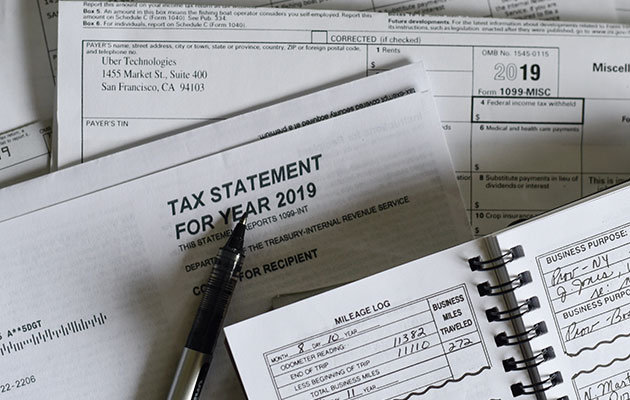-
Articles
Legal Matters to Understand When Audited by the Revenue Department of Thailand
In Thailand, taxpayers are obligated to file various types of taxes, in compliance with the relevant legal criteria when engaging in business operations in Thailand and abroad. For juristic persons, this obligation includes the payment of corporate income taxes (CIT), value-added taxes (VAT), specific business taxes (SBT), and stamp duties, as well as filing and remittance of withholding taxes and taxes on income paid to foreign juristic persons. The duties and responsibilities associated with tax compliance are extensive, and Thai law contains statutory civil and criminal penalties for noncompliance. Compounding the issue, it is challenging to ensure 100% accuracy in compliance with tax law in Thailand.
Authority to Assess Income Based on Bank Deposit Records
Since 2019, Tax Assessment Officers from the Revenue Department of Thailand (“Revenue Department”) have had tools with which to verify taxpayers’ income through bank statements under Section 3 septdecies of the Revenue Code of Thailand (“Revenue Code”), pursuant to which banks are required to report transaction information to the Revenue Department of Thailand in the following scenarios:
- If the total number of deposits or funds transfer transactions across all of the relevant taxpayer’s accounts exceeds 3,000 times per year per bank; or
- If the total number of deposits or funds transfer transactions across all of the relevant taxpayer’s accounts exceeds 400 times per year per bank and the aggregate value of these transactions amounts to at least 2,000,000 THB.
If the declared income of a taxpayer (individual or juristic person) is inconsistent with the amounts deposited in the taxpayer’s bank accounts, or if the income recognized is incomplete, or if the taxpayer cannot provide clear and sufficient evidence to explain that the amounts deposited into the account do not constitute business income, Tax Assessment Officers from the Revenue Department have the power to assess taxes based on applicable principles, pursuant to the legal authority described above and pursuant to applicable law.
After the tax authority issues a Tax Assessment Notice to a taxpayer, the taxpayer has the right to file an appeal against the assessment within 30 days of the date of receipt of the Tax Assessment Notice.
What Should a Company or Partnership Do When Facing a Tax Audit by the Revenue Department of Thailand?
(1) First Step: Review of Tax Compliance Status
The first step is for the taxpayer to review its tax compliance status, to determine whether all required tax returns have been filed. If tax returns have not been filed, it is important to note that tax liabilities are subject to a 10-year prescriptive period, pursuant to Section 193/31 of the Thai Civil and Commercial Code. In judgment No. 1401-1402/2515, the Supreme Court of Thailand ruled that the prescriptive period begins on the date the taxpayer is obligated to file the tax return and make the relevant payment. If the right to claim payment is not exercised within 10 years, the claim expires.
However, the case above did not involve the filing of tax returns. If a taxpayer files an inaccurate or incomplete tax return, the following considerations apply:
- Corporate Income Tax (CIT)
For the assessment of CIT, a Tax Assessment Officer has authority to issue a summons for examination within two years from the date of filing of a tax return, whether or not the filing was made within the deadline or during an approved extension period. Exceptions apply where there is evidence for or reasonable suspicion of intentional tax evasion by the taxpayer, or in circumstances necessary for processing tax refunds (in cases involving auditing due to a request for a tax refund). In such cases, the Director-General of the Revenue Department is empowered to approve an extension of the period for issuance of a summons beyond two years, but not in excess of five years after the date of filing the tax return, pursuant to Section 19 of the Revenue Code. - Value-Added Tax (VAT)
Where a VAT return (Form Phor.Por. 30) was not filed, or where a return was filed but the tax base was understated by more than 25% of the actual taxable amount received or receivable, the Revenue Department’s Tax Assessment Officers have the authority to assess VAT within 10 years from the last date of the deadline for filing the tax return, pursuant to Section 88/6 (1) (c) of the Revenue Code. Therefore, if a VAT registrant files and pays VAT, and the understatement does not exceed the 25% threshold, the assessment is subject to the prescription in Section 19 of the Revenue Code. - Specific Business Tax (SBT)
Tax Assessment Officers from the Department of Revenue have authority to assess SBT within 10 years from the last date of the deadline for filing the relevant tax return in accordance with Section 91/21 of the Revenue Code. - Stamp Duty
If stamp duties are not paid, or not properly affixed and canceled, in accordance with the criteria set forth in the Revenue Code, the Department of Revenue’s Tax Assessment Officers must assess and collect additional stamp duties from the income recipient responsible for issuing a receipt, pursuant to Section 114 (2) (b) of the Revenue Code. This assessment must be made within 10 years, as set forth in Section 193/31 of the Civil and Commercial Code of Thailand.
(2) Second Step: Review the Summons or Tax Assessment Notice
The following actions should be taken upon receipt of a summons for a Tax Audit and Assessment:
- Verify the legality of the Summons or Tax Assessment Notice
- Verify whether or not the Summons or Tax Assessment Notice was signed by an authorized officer of the Revenue Department of Thailand. By law, the document must be sent via registered mail or delivered by the authorized officer during the daytime and during business hours. Alternatively, it may be served on a person who is at or above the age of majority at the designated address.
If the methods above are not feasible, the Revenue Department is authorized to serve the Summons or Tax Assessment Notice by affixing it to the taxpayer's domicile or business premises. The question whether or not a Summons or Tax Assessment Notice was received properly is critical, as it affects the timeline for filing appeals and pursuing legal actions in court. - Upon receipt of a Summons, the taxpayer must cooperate by providing explanations and submitting supporting documents as requested. The taxpayer may request an extension of time to prepare the necessary documents in order to cooperate properly, by presenting accurate facts and testimony to the Tax Assessment Officers from the Revenue Department. A request to postpone a meeting with Tax Assessment Officers must be submitted in written form, and must explain the reasons for the request.
Upon submission, the request form and supporting documents should be accompanied by receipts or acknowledgments from the Revenue Department, including signed evidence of submission, as failure to provide evidence or respond adequately to inquiries may result in a negative record in the investigation file. This could limit the taxpayer's legal rights to appeal, particularly where the taxpayer fails to answer questions or provide requested information without reasonable cause, or refuses to comply with lawful orders issued by a Tax Assessment Officer.
Issuance of a Summons or Tax Assessment
The Revenue Code permits the issuance of tax assessments by Tax Assessment Officers in two forms:
- Assessment after issuance of a Summons for examination.
- Assessment without the issuance of a Summons for examination.
・VAT Assessment pursuant to Sections 88 and 88/1:
Tax Assessment Officers have the power to assess VAT without issuing a Summons for examination beforehand. Section 88/4 of the Revenue Code grants Tax Assessment Officers the discretion whether or not to issue a Summons for examination before assessment.
・Specific Business Tax Assessment pursuant to Sections 91/15 and 91/16:
Tax Assessment Officers have the power to assess SBT without issuing a Summons for examination, as Section 91/21(5) of the Revenue Code provides that the provisions of Section 88/4 (concerning VAT) apply, mutatis mutandis, to SBT assessments.
・Collection of Stamp Duties:
If stamp duties have not been paid, were improperly affixed, or were paid incorrectly, Tax Assessment Officers have the power to collect the amount due without issuing a Summons for examination. This is because the Revenue Code does not classify stamp duty as a "self-assessed tax" (a tax for which the taxpayer must assess its own liability and file with the Revenue Department) and there is no provision specifying otherwise. Moreover, Section 123 of the Revenue Code grants Tax Assessment Officers the discretion whether or not to issue a Summons for examination.
・Withholding Tax (WHT) Assessment:
Tax Assessment Officers have the power to require the a payor of income tax who failed to withhold WHT, or who withheld it incorrectly or incompletely, to pay the WHT that was not, or was improperly, withheld without issuing a Summons for examination. This is because this process does not constitute a reassessment of amounts declared by the income recipient under Section 20 of the Thailand Revenue Code.
This article contains an overview to assist taxpayers, business owners, and related departments, such as accounting departments, with preparing for tax audits and assessments by the Revenue Department of Thailand and its Tax Assessment Officers. However, we strongly advise all persons and entities to obtain guidance from qualified tax experts or legal professionals when dealing with tax-related issues in Thailand.
This article is intended as merely a regulatory overview, and is not intended to be comprehensive or to constitute legal advice. If you have any questions on this or on other areas of tax law, please do not hesitate to contact our Tax Team at SCL Nishimura & Asahi Limited.
Budhima Kerdsiri
Counsel
Hatairat Sukprasert
Associate






Budhima provides advice on tax compliance and a wide variety of tax-related work. In particular, she has extensive experience with accounting transactions and tax planning. Further, she has handled tax counseling and tax controversies and has substantial experience representing and advising individuals and major corporations in tax disputes, including filing appeal letters for tax assessments, which were assessed by the Revenue Department, the Customs Department, the Excise Department, and local tax collection agencies such as those dealing with land and building tax. In addition, she has more than 10 years of experience as a public speaker and columnist for tax magazines, focusing on tax planning and tax compliance for individuals and companies seeking to maximize their tax privileges under Board of Investment (BOI) promotion and accounting adjustments to comply with Thai tax laws.
Budhima was a columnist for the Tax Documentation Journal, the No. 1 public journal related to accounting and taxation published by Dharmniti Press Co., Ltd., and she is also the author of “Differences and similarities between accounting profit and taxable profit,” a book that has been published twice.